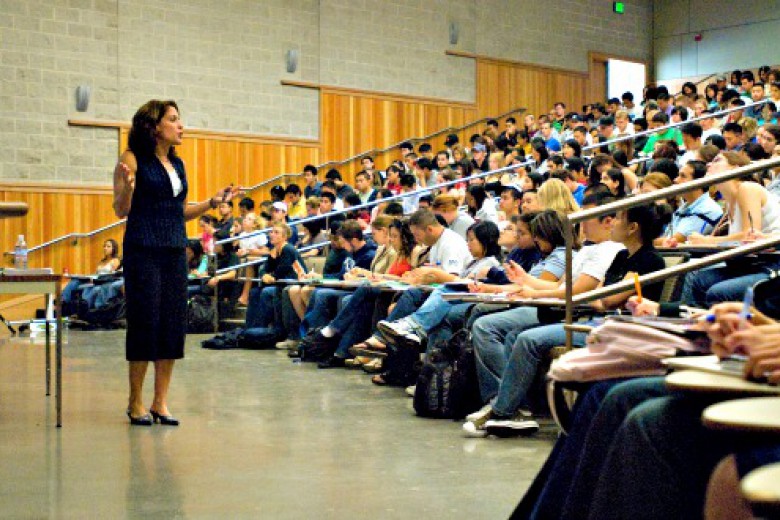
Jarred Briggs
Late 2024 saw two political records broken in Nova Scotia’s provincial election: the lowest turnout of eligible voters in the province’s history and the Progressive Conservative (PC) party winning its highest number of ridings. The party’s platform – which preached health-care reform and addressed the cost of living while centring business interests, the importance of family, and the need to reduce taxes – made no mention of universities. So when the supermajority introduced legislation intervening in the administration of post-secondary education, many were taken by surprise.
Quickly receiving royal assent on March 26, 2025, Bill 12 – An Act Respecting Advanced Education and Research, commonly referred to as Bill 12, became law. Blunt in its execution, the Act requires that research, work, and governance of all post-secondary institutions across the province align with the economic objectives of the government – and capital. Opposition swiftly arose with both workers and students voicing their disapproval. Exposing the irony of the Act’s title, David Robinson, executive director for the Canadian Association of University Teachers (CAUT), says in a press release, “The government’s actions represent unacceptable political interference in the internal educational affairs of universities.” Robinson explains that university independence is necessary for basing high-level decisions “on educational priorities, not political diktat.” Similarly troubled by the legislation, the Canadian Federation of Students Nova Scotia framed the law as nothing short of a “sponsored erosion of democracy” as it hands the provincial government “unbridled authority” to obstruct resources, programs, and academic freedom.
After decades of federal and provincial abandonment, only one-third of Nova Scotia’s current university funding is derived from public coffers.
This expanded government capacity to influence the mission of the university, while trying to control the activities of those within it, is not unprecedented in Nova Scotia. Augmenting legislation from a decade prior, the PCs have built upon pre-existing anti-labour measures enacted by the Liberal party. Moving Bill 100 in 2015, the Liberals hampered the ability of unions in this sector to engage in collective bargaining. When applied, the legislation made it unlawful for workers to withhold their labour-power as a means of negotiation.
Over ten years, Liberal and Conservative legislation has weakened what few critical and class-based actions are permitted in the workplace. Now the PC government is empowered to instruct what is admissible outside it. Rather than perceiving either party, or their rule, as materially different, it is vital to understand the ways those in political office serve capital.
Warnings About Universities
After decades of federal and provincial abandonment, only one-third of Nova Scotia’s current university funding is derived from public coffers. In 1978, roughly 80 per cent of the funds going to Nova Scotian universities came from federal and provincial sources, according to a report from the Nova Scotia Post-Secondary Education Coalition. Across Canada, this dropped to the 70 per cent range during the 1980s. From 2008 to 2018, provincial assistance weakened further, wavering between 42 to 47 per cent of total university revenue in contrast to the nation-wide average of 57 percent. Present data highlights how this pattern of decline continues, as 2025 saw the provincial government shore up only 33 per cent of university funding. Since 2001 to 2020, the province’s total expenditure on post-secondary education averaged just over 1.2 per cent of GDP. With these overall declines in state-supported funding, the cost of attending university stretches further out of reach for (too) many students.
Whether uttered by a relative at the dinner table or published by a think tank promoting the free market, narratives about the alleged unproductivity of a liberal arts program or oversaturation of degree holders in the applied sciences are nothing new. What stands out of late, however, is the number and tone of reports chiefly aimed at the working class, which detail the individual fiscal burden, if not impracticality, of an undergraduate education. As tuition rates rise every year, so does the financial and mental toll of attending university. Understandably, all this can prevent many would-be working class students from enrolling (or finishing).
To ensure the continuity of maximum profit, capitalists must exert pressure over more than the means of production they privately control; they need capital’s “ruling ideas” to become widely accessible and normalized.
These reports subtly send the working class a message that critical thinking is irrelevant or even worthless. Intentionally or not, they suggest that attending university defers or interrupts a need to face the real world. Emphasizing only the monetary challenges that await those who pursue post-secondary study obscures other social and political benefits: the relationships; endless forms of knowledge; global insights; and alternative outlooks derived from the lived experience of campus life. Such omissions are telling.
The last two years have dramatically demonstrated the poignancy and power that can be wielded across classrooms and quads. While not the only sites to hone political agency, universities have been influential in formulating critiques about climate change, the failures of liberalism, fascist horizons, and an unceasing genocide. More than that, they have enabled hundreds to come together to harbinger something different. Take, for example, the many organized encampments erected across the country in solidarity with the people of Gaza. More than spaces of informed collective agency, the power of these encampments demonstrated a material and ideological threat to the status quo and dominant interests. In reaction to their existence and potential, a vast number of pre-emptive policies and violent spectacles were levied to silence any that would struggle against imperialism and settler-colonialism or contest Palestinian erasure.
All of this begs the question, if universities are truly irrelevant, why the concerted effort toward defunding, obstruction, and legal intervention? The answer, in part, is to stabilize capitalist hegemony.
“Their Ideas are the Ruling Ideas”
To ensure the continuity of maximum profit, capitalists must exert pressure over more than the means of production they privately control; they need capital’s “ruling ideas” to become widely accessible and normalized. Arm in arm with the State, this small owning class tries to bias “intellectual, moral and political” lines of thinking to sustain some measure of power over the working class they exploit.
Yet, as one reads the Act more closely, it becomes evident that these priorities are not democratically chosen through a committee of researchers nor with the input of members of the broader community. To the contrary, they are to be vetted and handpicked by the office of the minister of advanced education.
To expand authority, they leverage public institutions in their favour; particularly those associated with post-secondary education and research. This influence of capital is especially apparent in the university landscape of the Maritimes as names etched across campus buildings tell a clear story: those that concentrate ownership and enclose resources prove to be more than authoritative titans of industry.
Apprehending its value, efforts are made to steer the post-secondary system to capital’s benefit. In doing so, this capitalist class reveal a latent fear toward said institutions. Universities are not singular or static centres of capitalist social reproduction. They are home to analysis, debate, and heightened critical scrutiny. Dialectically, the university reveals the many contradictions and vulnerabilities generated by the same political and economic system that seeks to exploit it. Left uncontrolled, such consciousness can become a concern to those in power. This is not to imply that the university is in any way the epicentre of class struggle, but, like any location engaged in the exploitation of current or future workers, it houses a capacity for resistance. With this potential ever present, economic and political interests must develop ways to stabilize their existing social power – in manufacturing, extractive industry, or, in this case, a set of universities in a small Atlantic Canadian province.
Bill 12: Shackling Academia to Capital
While much legislation drips of an unfamiliar legalese, even a surface appraisal of Bill 12 reveals layers of political and economic interference imposed over an already compromised university system. In it, the province claims a willingness to “organize and co-ordinate the funding of research to support and advance key provincial research priorities.” Specifically, as a Research Nova Scotia explainer makes clear, the province wants to see productivity and economic growth in the priority areas of: natural resources, climate change and clean energy; life sciences and health sciences; and construction and transportation. Yet, as one reads the Act more closely, it becomes evident that these priorities are not democratically chosen through a committee of researchers nor with the input of members of the broader community. To the contrary, they are to be vetted and handpicked by the office of the minister of advanced education. Moreover, aside from single-handedly dictating what exploration will be worth valuing, the minister can personally appoint several members of Research Nova Scotia’s board of directors. Bill 12 biases not only what is financed but the very makeup of who oversees the provincial distribution of said funds.
Outside of screening what research is supported (or not), the province has widened its power over the “governing body” of every university in the province. The Act gives the minister authority to appoint up to 50 per cent of each board of governors at Nova Scotia’s ten institutions. The legislation also requires every post-secondary institution to “provide a plan satisfactory to the Minister” clearly identifying how research and work being done across all faculties, departments, and programs demonstrate “a strategic connection between the social and economic priorities of the Government.” If a board fails to submit this plan, Bill 12 empowers the minister to initiate a government-run top-down “revitalization planning process.” If any institutions contravene, the minister can withhold or refuse its grants.
Leaving little doubt whether academic freedom was still on the table, the government declared that research priorities included handing publicly funded knowledge and innovation over to industry, greater association with trade and exports, furthering the commercialization of research (including the manual and mental production of ‘intellectual property”), and, needless to say, increasing provincial GDP.
In February, prior to the bill becoming law, the minister said, “in no circumstances will we be asking them [boards of governors] to eliminate programs.” While technically accurate, this careful wording obscures what the Act is able to do. While not directly engaged in the gutting of research and teaching deemed unfavourable to capital, its enactment of Bill 12 has both influenced and enabled university administrations to initiate and justify such actions. Within days of the legislation’s passing, Saint Mary’s University pre-emptively cut roughly 50 arts and humanities courses. According to CUPE 3912, the university is now offering 80 fewer courses than it did in the 2023-2024 school year, with a 56 per cent cut in part-time jobs. Not public at the time of this writing, other university administrations have not only instituted hiring freezes – nullifying all tenure-track and part-time appointments – but have called for the workers within existing academic units to take on the emotional and physical labour of identifying and self-imposing a minimum 5% budget cut to their own departments and programs.
In addition to the government determining the province’s research priorities, it has granted itself authority to alter and change those priorities at any time. In total, the Act gives the provincial government license to constrict the allocation of public funds, influence areas of research toward its societal, fiscal, and political interests, and fluidly redirect or revise anything it chooses. Within weeks of the bill being enacted, the province had finalized its academic priorities.
As of May 1, 2025, the province mandated that all funded research must “contribute to measurable changes in provincial economic growth or productivity.” Leaving little doubt whether academic freedom was still on the table, the government declared that research priorities included handing publicly funded knowledge and innovation over to industry, greater association with trade and exports, furthering the commercialization of research (including the manual and mental production of ‘intellectual property”), and, needless to say, increasing provincial GDP. Adding insult to injury, the government attached an addendum requiring evidence of said benefits to be demonstrated. In addition to their work as academics, scholars receiving funding must also act as accountants to provide proof that the province’s desired outcomes are being achieved.
Academic freedom requires the autonomy to design and perform research and subsequently teach about its findings in pursuit of “knowledge and understanding for the public good,” as Peter Ives argues in Rethinking Free Speech. It is clear that this will no longer be the academic climate in Nova Scotia.
Testing Disposability in the Maritimes
Through Bill 12, the province is testing means of control and eventual disposal of critical perspectives and scholarship. This process restricts Nova Scotia’s universities and reconstructs a black and white classification of academia; one where all researchers, courses, and publications are either burdensome or beneficial to a specific agenda. It is an operation that purposely stifles critique to bolster the supremacy of capital.
Such legislation devalues academia. Roberta Hawkins and Leslie Kern, two distinguished scholars who have bravely criticized the contemporary university system in Canada (with the latter making the decision to leave it entirely), encapsulate this sentiment brilliantly in their book Higher Expectations: How to Survive Academia, Make it Better For Others, and Transform the University. Through their insight, one can see how Bill 12 values select departments more highly than others by rewarding “certain types of work, people, and knowledge while making others invisible and insignificant.” The bill turns each board of governors into managers, repositions students as customers, whittles the public to shareholders, and modifies research into a tool for monetization.
As CAUT’s former president Peter McInnis told CBC News, “[Bill 12] seems to be picking up some of the more unsavoury trends across the country [...] It seems to be part of a certain amount of anti-democratic legislation.” With various interventions being waged against the post-secondary sector as a critical and public medium across the country, Nova Scotia can be framed as a regional fissure where “the goals of academia” – and its “core purpose […] to contribute to the common good of society by producing and disseminating knowledge and critical thinking” – are taken out of the hands of their producers and put to the service of power and profit.
There is a confidence that Canadians and other nations will ignore this out-of-sight out-of-mind province. Nova Scotia is, then, home to a strategic pilot project; a control site to externally assess if people will notice and tolerate the further suppression of labour power in the Maritimes.
Possibly due to its Maritime origin, Bill 12 has been underreported and largely unnoticed elsewhere in Canada. Nevertheless, it follows a familiar blueprint where government figures direct post-secondary educators to allow “private sector actors more of a voice in university governance under the pretense that universities are now de facto public-private institutions,” as Chris Hurl argues in The Canadian State. Rather than prioritizing a recalculation of immediate and long-term societal needs, the public money once earmarked for public institutions has been purposely limited. This leaves an opening for private interests (often encouraged) to fill a void manufactured by the State. This planned defunding has not only left Nova Scotian universities susceptible to “a commercial ethos” but the government itself has legislated the structural incorporation of capital into their operations.
Wholly transparent in its intent to stabilize political and economic power, the Nova Scotian government states that if such measures are not met and sustained (that is, the research community increasing its work in service of capital), then foundational finances can be reappropriated. Through an ultimatum that threatens to withhold public funds, and the ability to cut programs, the State claims dominion over ideas.
While this is happening in a pocket of Atlantic Canada, Bill 12 does not exist in a vacuum. Similar intentions have been shared openly by federal politicians. For example, in a platform promise geared toward Quebec voters, the federal Conservative Party boasted that “a Conservative government would put an end to the imposition of woke ideology […] in the allocation of federal funds for university research.” Within hours of this statement (or dog-whistle) going public, workers across the province began organizing and denounced the declaration “as a direct threat to academic freedom,” framing such pronouncements as authoritarian “echoes” of “recent actions taken in the United States,” according to reporting in the Montreal Gazette.
Response to Bill 12 has been much quieter. Hoping inaction and silence prevail, those who passed this legislation believe Nova Scotia to be an ideal testing ground. There is a confidence that Canadians and other nations will ignore this out-of-sight out-of-mind province. Nova Scotia is, then, home to a strategic pilot project; a control site to externally assess if people will notice and tolerate the further suppression of labour power in the Maritimes.
While those in power may perceive the Maritimers as complacent, this is no time to give way to a sense of powerlessness. To the contrary, this moment provides an opportunity for radical experimentation across these ten institutions, as each is a necessary site for class struggle. Bill 12 is firm in its opposition to diverse modes of thinking and its disregard of any segment of the proletariat. Be they existing or would-be students, full-time faculty or staff, workers trying to survive on per-course appointments, part-time librarians, precarious instructors, community members, and so on, all those seeking to protect critical thought and prioritize pedagogical principles have a role to play in resisting the power that would exploit and repress it for private gain. While the expectation is compliance, now is the time for dissent.






